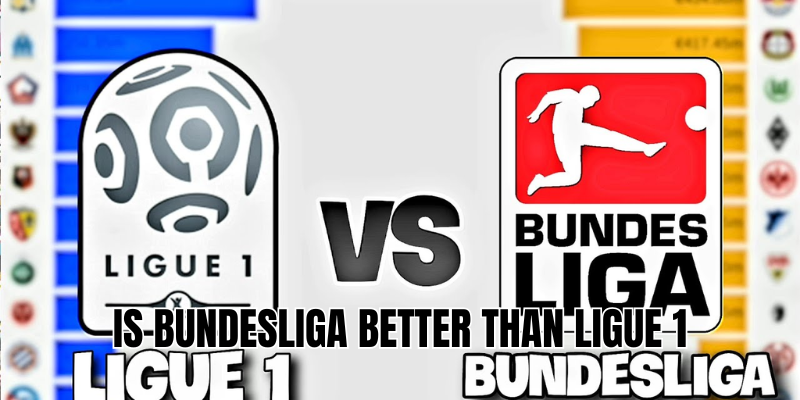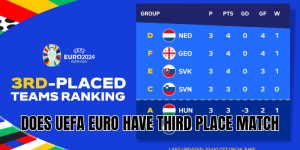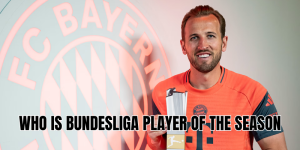In the debate over whether Bundesliga is better than Ligue 1, the short answer is: it depends on what you value most—its fan culture and attacking football give the Bundesliga strong appeal, but Ligue 1 offers a different kind of challenge with physicality, youth talent, and narrative. Below, CanLinkCup will walk you through a detailed comparison so you can decide which league truly resonates more with football fans.
1. League structure and competition
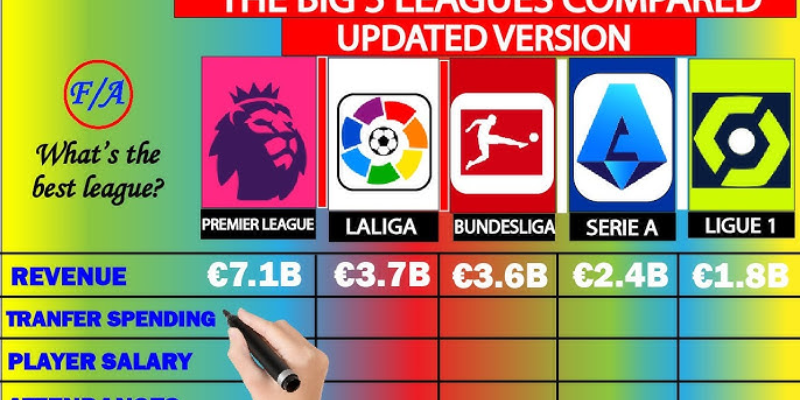
Bundesliga format and style
The Bundesliga, Germany’s top flight, is known for its electric atmospheres, high average attendances (around 38,600 spectators per match) and relatively affordable tickets. With 18 teams playing 34 matches each, it delivers a fast-paced, attack-oriented style of football and typically fewer card offenses compared to other European leagues—showcasing a blend of tactical discipline and open play.
Ligue 1 format and narrative
Ligue 1 in France also runs a 34-game season and has grown under the influence of Paris Saint-Germain, whose dominance has sparked debates about the league’s competitiveness. The league is often framed as a development ground for young talents, and recent seasons have highlighted a strong pipeline to Europe’s top clubs—but also raised questions about balance and parity across clubs.
Competition balance and title races
One key point in the Bundesliga vs. Ligue 1 debate is competition balance. The Bundesliga has faced criticism for Bayern Munich’s near-constant dominance, which can make its title race predictable. Meanwhile, Ligue 1 has historically seen fewer different champions, but in recent seasons there have been closer title races—though PSG’s financial superiority still looms large.
2. Style of play: intensity, pressure, and tactics

Tempo, pressing, and physicality
The German league is often praised for its transitional play, pressing game, and attacking transitions. Bundesliga matches typically feature high tempo, regular pressing sequences, and a willingness to push forward—even.
Defensive challenges and goal-scoring
Bundesliga matches regularly produce goals and open play, which can be thrilling for neutral fans and attackers alike. On the other hand, Ligue 1 sometimes swings between tactical solidity and explosive attacking displays—depending heavily on team matchups. Although PSG can dominate games, other Ligue 1 sides often adopt defensive, counter-attacking strategies, which can lead to slower stretches of play. The variation in tactical approaches makes Ligue 1 less predictable in style, but arguably more fragmented.
Tactical sophistication vs raw talent
Ligue 1 has multiple clubs focusing on nurturing young players—many of whom transition to Europe’s top leagues—making games less about tactical nuance and more about raw talent and individual moments. The Bundesliga, by contrast, typically blends youth development with structured team tactics. This hybrid approach often results in matches that are both fast and strategically rich.
3. Youth development, talent export, and transfer impact
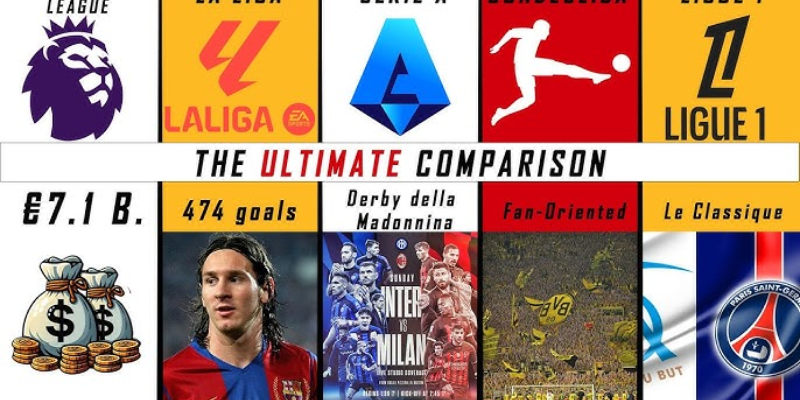
Who develops better stars?
A major strength of the Bundesliga is its proven track record in identifying and developing young players. German clubs such as Borussia Dortmund and RB Leipzig regularly promote academy talents and give them first-team opportunities early on. This has produced stars who go on to thrive in international football.
Ligue 1, however, is widely considered a launching pad for world-class talent. Players such as Kylian Mbappé, Ousmane Dembélé, and many others their teeth in the French league before earning big-money moves abroad. The difference is that Ligue 1 often ends up as a selling league—clubs nurture talent, only to see them depart for bigger leagues. This can weaken the league’s long-term competitiveness, but boosts its reputation as a developmental playground.
Financial realities and transfer dynamics
The Ligue 1 model has become heavily reliant on transfers. Many clubs outside PSG generate revenue by selling young stars, which both sustains their finances and empties competitive depth. Bundesliga, by contrast, generally maintains more sustainable financial models, which allow clubs to retain talent longer and build more cohesive squads.
4. European performance and international perception
How Bundesliga clubs fare in Europe
In terms of European competition, Bundesliga teams—particularly Bayern Munich—have a long history of continental success. Germany has produced multiple Champions League winners and Europa League contenders, reinforcing the league’s reputation as one of Europe’s strongest.
Ligue 1 in continental tournaments
Ligue 1 has relied heavily on Paris Saint-Germain for European credibility. PSG’s presence in the Champions League has often carried the French league’s reputation, but aside. This raises questions about depth and the league’s overall strength. While Ligue 1 continues to produce star players, those players often leave before making a long-term impact on the European stage while still playing in France.
Global appeal and entertainment value
When it comes to global reach and fan engagement, Ligue 1’s image rests on star power—such as Mbappé, Neymar, and previously Ibrahimović. In contrast, Bundesliga sells itself as the home of passionate fans, loud stadiums, and community-driven football experiences. The emotional intensity of Bundesliga matches often lies in the atmosphere and club structures, while Ligue 1 leans on individual brilliance and headline-making transfers.
5. Strengths and weaknesses: Bundesliga vs Ligue 1
Bundesliga strengths:
- High fan attendance and vibrant stadium atmospheres
- Strong youth integration and balanced club models
- Matches with tactical depth and attacking transitions
- Sustainable financial operations and community linkages
Bundesliga weaknesses:
- Dominance by Bayern Munich can reduce title suspense
- Lower international financial clout than some competing leagues
- Some clubs struggle to retain star players long-term
Ligue 1 strengths:
- Hotbed for young talent and emerging stars
- Occasional dynamic attacking football when star-studded sides clash
- Strong potential for unpredictable matchups when PSG underperforms
Ligue 1 weaknesses:
- Overreliance on PSG, leading to predictable title races
- Talent drain through frequent transfers abroad
- Inconsistent match intensity and tactical depth across the league
Conclusion
Is Bundesliga better than Ligue 1? It’s not a one-size-fits-all verdict—Bundesliga often edges ahead when it comes to fan culture, long-term club stability, tactical balance, and competitive integrity. But for fans who love watching raw talent, transfer-market drama, and future stars in the making, Ligue 1 has its own distinct appeal and narrative pull.
If you want a league that feels communal, strategic, and enduring, Bundesliga might be your pick. But if you’re drawn to the excitement of rising talents and headline-grabbing moves, then Ligue 1 delivers a different kind of intensity.
Want to dive dee, or match-by-match comparisons of these leagues? Stay with CanLinkCup, and we’ll unpack those layers for you in upcoming articles.

